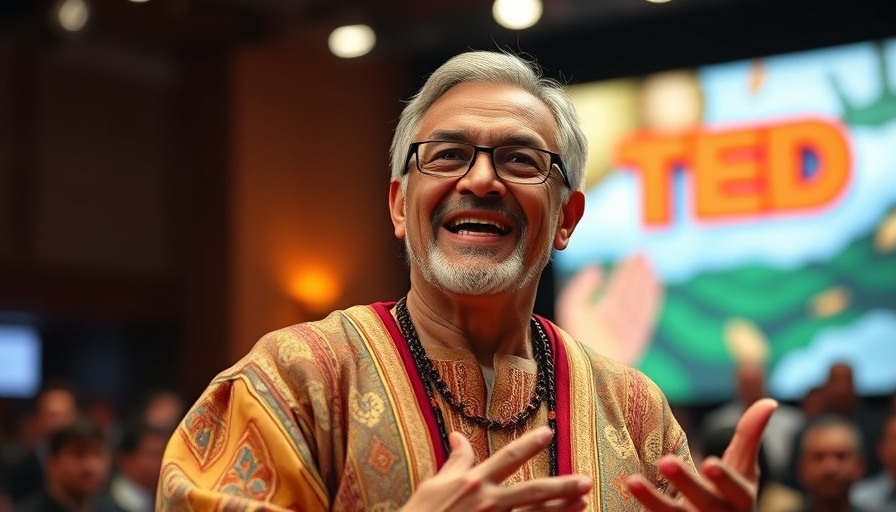
Reimagining Climate Narratives: The Role of Storytelling
In Fenton Lutunatabua's compelling TED talk, he shares a poignant memory of fishing with his grandfather, which sets the stage for a broader conversation about the climate crisis facing the Pacific Islands. The ocean, a source of sustenance and connection for his family, now symbolizes an urgent struggle against climate change that threatens their very existence. Lutunatabua's journey highlights a growing realization among many vulnerable communities: the need for new stories that empower rather than victimize.
In 'The Climate Movement Needs New Stories — Here’s Mine', Fenton Lutunatabua discusses the Pacific Climate Warriors and their empowering narrative in the face of climate change, prompting us to rethink how stories can shape our future.
From Victims to Warriors: Climate Leadership
The Pacific Climate Warriors, as Lutunatabua describes, emerged over ten years ago in response to a narrative that portrayed Pacific Islanders solely as victims of climate change. This new order showcases their resilience and proactive stance – the slogan "We are not drowning, we are fighting" encapsulates this shift perfectly. By reclaiming their stories, they have taken ownership of their identities and actions in confronting climate challenges.
Collective Stories Amplifying Change
Through co-created narratives and shared experiences, Pacific communities are not only standing against fossil fuel dependency but also developing innovative solutions for sustainable living. From portable solar modules to keyhole gardens, these initiatives demonstrate practical responses to climate threats. Lutunatabua emphasizes the essence of climate leadership, stating that these collective efforts can galvanize support from around the world, ensuring the future can be built on sustainable practices.
Importance of Narrative Leadership
Narrative leadership plays a crucial role in this transformation. By articulating the experiences and stories of communities at the front lines, they cultivate a rich tapestry of voices that demand attention and respect. Lutunatabua urges us to embrace this leadership, highlighting that the narratives crafted by these communities can redefine perceptions and pave the way for actionable change – a transition from being passive recipients of aid to active architects of their futures.
Co-creating a Sustainable Future
To foster a viable future, Lutunatabua calls for us to break free from stories that serve to undermine agency and build those that reflect our collective power. By centering Indigenous knowledge and resilience, we can collectively combat climate issues. This requires both local and global allies collaborating to create environmentally sustainable frameworks that empower vulnerable populations.
As Lutunatabua eloquently concludes, telling our stories is not merely about survival but about thriving. The Pacific's narrative must evolve to reflect their strength, showcasing their contribution to a collective solution that benefits all of humanity.
 Add Row
Add Row  Add
Add 




Write A Comment